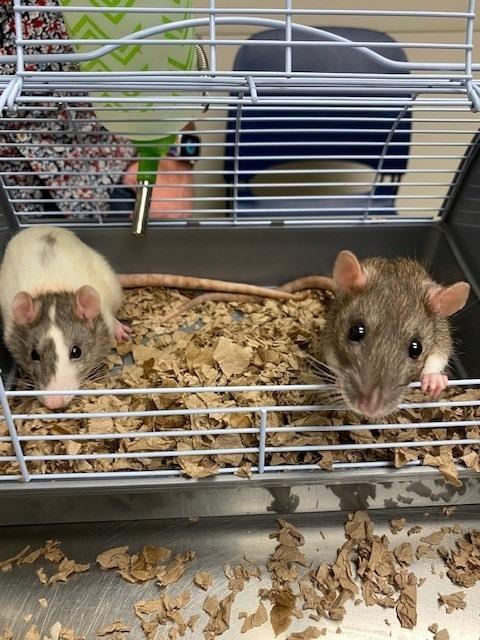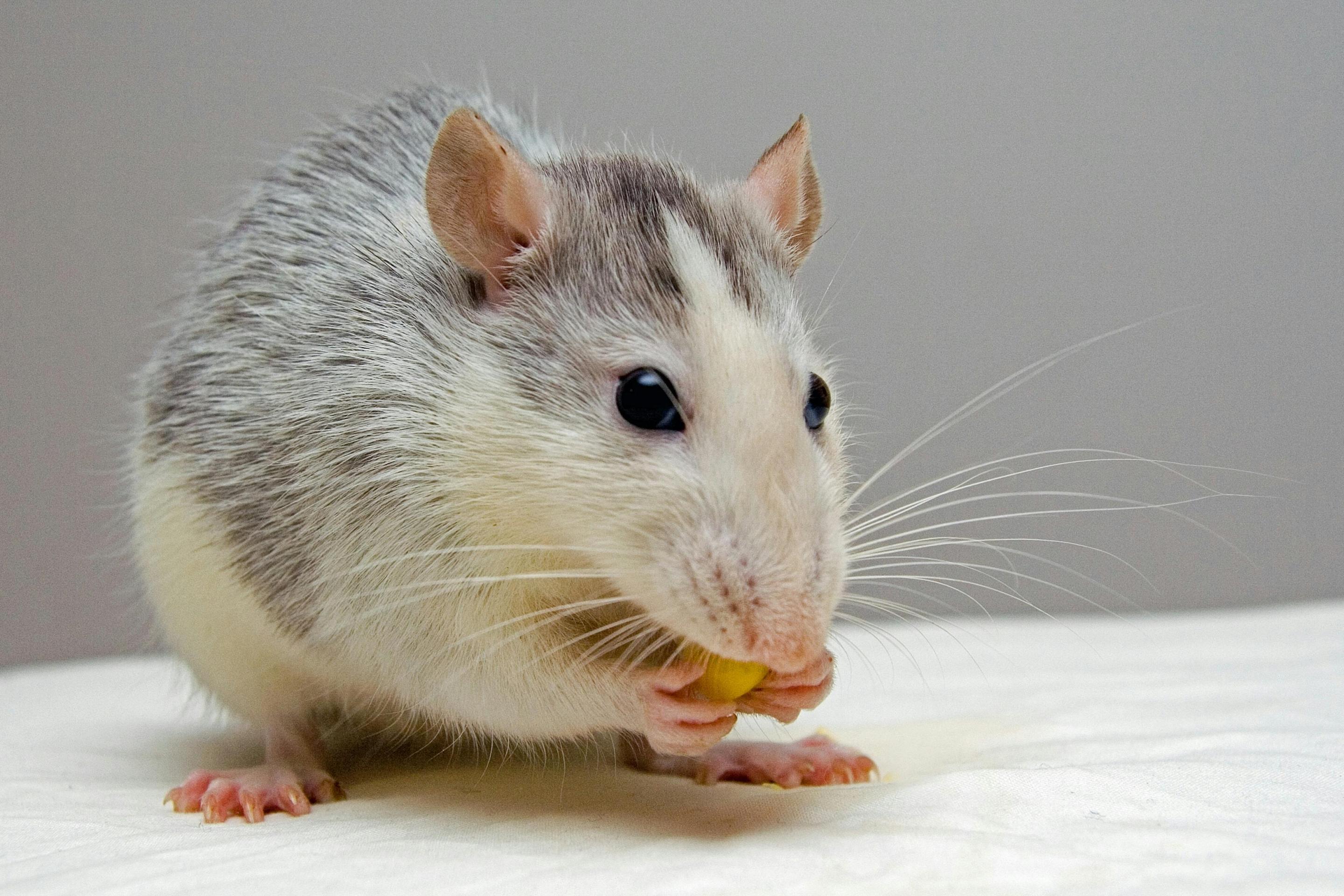
Mice

- Mice make great starter pets
Mice make great starter pets for young kids or teenagers, as they are fairly simple to care for. They tend to be of docile nature and come in many shapes and sizes. The average lifespan of a mouse is 2 to 3 years.
- Mice are very agile
Mice are very agile and tend to spend their time running and being active. They require time outside of housing to roam with a lot of stimulation, like tubes or toys.
- Cage Requirements
Your mice's cage should offer large amounts of ventilation and be at least a foot long. The cage must be escaping proof, as mice tend to be escape artists! Especially if a child is caring for the mouse. It can be made of material such as metal, wire, or plastic. The cages that tubes can attach to work well for stimulation. Aquarium type of cages is not recommended due to poor ventilation.
A sipper bottle is recommended, to prevent spilling and soiling bedding. If water spills and the pet sits, it can cause various health concerns for the pet. Fresh water must be available at all times.
Mice are typically found to be chewing on plastic, so ceramic or metal bowls are recommended for feeding.
For bedding, shredded newspaper or recycled paper litter is recommended. The cage is recommended to be cleaned out and bedding replaced at least 1 to 2 times weekly to reduce waste odor and contamination.
Toilet paper rolls or paper towel rolls can be used as hideaways, or as chew toys. Exercise wheels are highly recommended to keep stimulated.
Mice should not be housed with other mice unless they have grown up together, as they can show aggression to unfamiliar mice.
- They require a balanced diet
For mice, they require a balanced diet of grains. You can typically find different mixes of grains at a local pet store. These mixes contain a blend of fruits, vegetables, seeds, and grains.
For snacks, they can be given fresh vegetables like bok choy, broccoli, cabbage, parsley, beans and corn. Otherwise, they may have whole grains, pasta, and healthy cereals.
Fun fact: Mice are nocturnal! They spend most of their daytime snoozing away and are most active at night.
Schedule an Appointment
If you have a snake that requires care or if you want to learn more about creating the best environment for your pet, reach out to us today! Schedule an appointment to ensure your snake enjoys a long and healthy life.
For more information, feel free to contact us or visit our Contact Us page. We look forward to helping you care for your amazing companions!
Schedule an Appointment
- Call us at (602) 840-3446
- Book an appointment online www.ingleside.com
For more than five decades, families from greater Phoenix, Arcadia, Paradise Valley, Tempe, and Scottsdale in Arizona have come to rely on our trustworthy and compassionate care. As an AAHA-accredited, Fear Free, and Cat Friendly facility, your pet’s well-being and comfort are our highest priorities.
